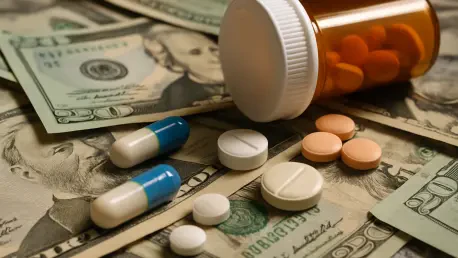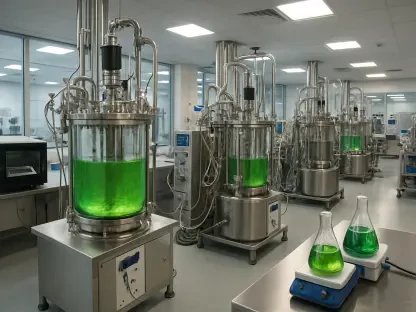Imagine a scenario where the cost of life-saving medications in the United States drops dramatically overnight, easing the financial burden on millions of families who struggle to afford essential drugs. This vision is at the heart of a recent bold move by President Donald Trump, who has directly challenged some of the world’s largest pharmaceutical companies to slash their prices. Letters sent to 17 industry giants, including Eli Lilly & Co., Novo Nordisk A/S, and Pfizer Inc., demand immediate action to align US drug costs with those in other countries. This aggressive stance aims to address the long-standing issue of American consumers paying significantly more for medications compared to their counterparts abroad. The initiative is framed as a protective measure against what Trump has called abusive pricing practices, highlighting a disparity where the US effectively subsidizes lower costs overseas through inflated domestic prices. This development has sparked intense debate about whether such demands can truly reshape the pharmaceutical landscape.
Unveiling the Demands and Deadlines
The specifics of Trump’s demands reveal a multi-faceted approach to tackling high drug costs. The letters to executives like Lilly CEO Dave Ricks and Pfizer CEO Albert Bourla call for an immediate reduction in prices charged to Medicaid for existing medications, alongside a mandate that new drugs launch in the US at rates comparable to international markets. Additionally, there’s a push for repatriating revenue from higher prices in Europe and other developed nations to lower costs for American consumers. A novel proposal includes creating a direct-to-consumer purchasing system for high-volume drugs, offering discounts typically reserved for third-party insurers. The urgency is underscored by a strict 60-day deadline for voluntary compliance, with a stern warning that non-compliance will trigger the full force of governmental tools to protect American families. Market reactions have been swift, with shares of companies like Lilly dipping by 0.7%, signaling investor unease about potential profit impacts. This confrontational strategy marks a significant shift toward greater government intervention in an industry often criticized for its pricing models.
Navigating Global Implications and Future Outcomes
Looking beyond domestic borders, Trump’s initiative carries profound implications for the global pharmaceutical market. The rhetoric, amplified through platforms like Truth Social, emphasizes prioritizing American families over corporate gains while challenging the notion that other developed nations enjoy a free ride on US innovation. There’s a nuanced suggestion of working with companies to raise prices abroad to match US costs, hinting at a complex strategy to balance international fairness with domestic relief. This approach could redefine how drug pricing is structured worldwide, potentially pressuring other countries to adjust their own policies. As this high-stakes negotiation unfolds, the personalized nature of the demands and the tight compliance window set the stage for intense discussions between the government and industry leaders. Reflecting on past actions, the determination to overhaul pricing practices was evident in every letter sent and warning issued, leaving an indelible mark on healthcare policy debates. Moving forward, stakeholders must monitor whether these bold steps lead to tangible reductions or if they merely intensify an already contentious battle.









